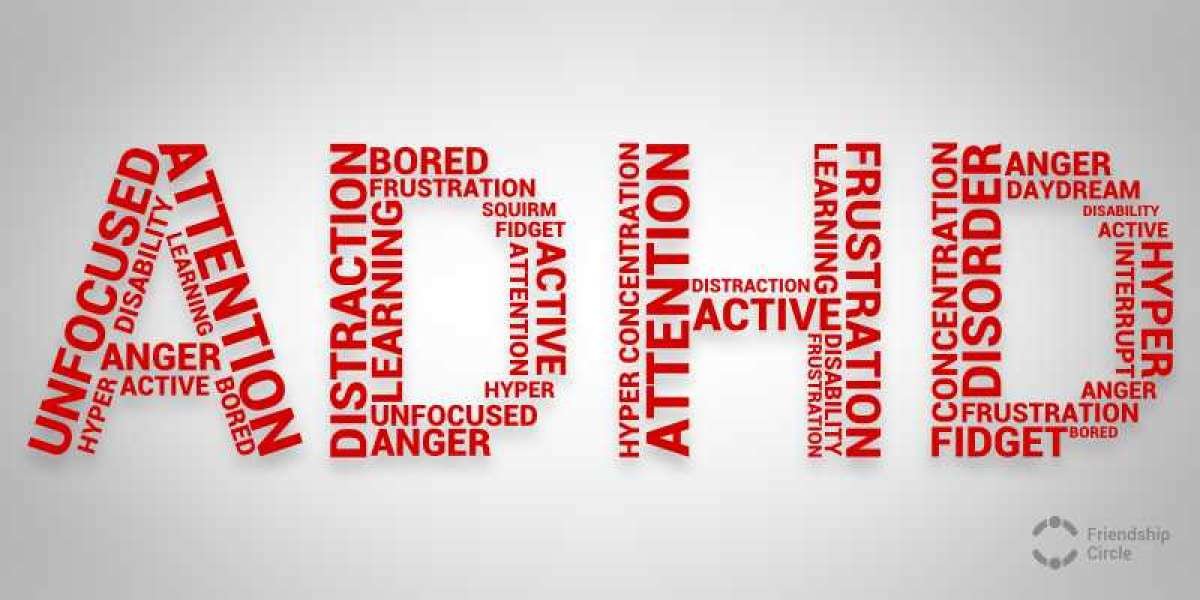First of all,
The neurodevelopmental illness known as Attention Deficit Hyperactivity illness (ADHD) is typified by impulsivity, hyperactivity, and trouble maintaining focus. It can have a major influence on everyday functioning, relationships, and general quality of life can affect people of all ages. Although there isn't a cure for ADHD, there are a number of coping techniques and approaches that people can use to successfully manage their symptoms. This post will discuss the difficulties of having ADHD and examine several coping strategies that may be adjusted to meet the needs of the individual.
Understanding ADHD:
Understanding the nature of ADHD Treatment is vital before diving into coping techniques. ADHD is characterized by significant biological changes that impact the brain's executive functioning, not merely by hyperactivity or readily becoming distracted. Impulse control, planning, time management, and prioritization are some of these abilities. It can be difficult for people with ADHD to plan ahead, finish chores, and control their emotions.
Difficulties of Having ADHD:
Living with ADHD comes with a lot of obstacles in many different areas of life. People with ADHD may find it challenging to concentrate in class, finish tasks on time, and study well in academic environments. They could have trouble managing their time, sticking to deadlines, and remaining organized at work. Relationship problems brought on by ADHD may include miscommunication, impulsive behavior, and trouble interacting with others.
Coping Mechanisms for ADHD:
Although people with ADHD face many difficulties, there are a variety of coping strategies they can use to control their symptoms and enhance their general wellbeing. It's important to understand that one person's strategy might not work for another, so you should experiment with numerous approaches to see which one suits you the best.
Medication Management:
Especially for the control of symptoms like impulsivity, hyperactivity, and inattention, medication is frequently the cornerstone of treatment for ADHD. Both non-stimulant drugs like Strattera and stimulant drugs like Adderall and Ritalin are frequently prescribed to assist modulate neurotransmitters in the brain, enhance focus, and reduce impulsive control. Medication is not a one-size-fits-all solution, however, and determining the appropriate drug and dosage may call for trial and error while being supervised by a medical practitioner.
Cognitive behavioral therapy, or CBT, is a kind of psychotherapy that aims to recognize and alter maladaptive thought patterns and behavioral patterns. For those with ADHD, it can be especially beneficial in tackling issues including impulsivity, procrastination, and low self-esteem. To better control their symptoms and enhance their general functioning, people can learn coping mechanisms, time management tactics, and relaxation methods through cognitive behavioral therapy (CBT).
Time-management and organization techniques:
Although people with ADHD frequently struggle with organizational abilities, there are numerous techniques that can aid with time management and organizing. This can involve keeping track of assignments and due dates with the use of calendars, planners, and to-do lists. Organizing work into smaller, more doable steps can also reduce overwhelm and boost output. Furthermore, routines and persistent behaviors can offer structure and stability, both of which are advantageous for the management of ADHD symptoms.
Exercise and Mindfulness:
Managing the symptoms of ADHD can be greatly aided by engaging in physical activity and mindfulness exercises. Exercise has been demonstrated to increase brain levels of dopamine and norepinephrine, which can enhance mood, focus, and attentiveness. Practices like yoga, meditation, and deep breathing can also aid in mental relaxation and the reduction of tension and anxiety. Including regular exercise and mindfulness exercises in your daily routine can help with symptom management and general well-being.
Supportive Environment and Social Support:
For those with ADHD, having a supportive environment and social support system can be quite beneficial. Having supportive and encouraging friends, family, and coworkers who understand your struggles and can provide encouragement and support can go a long way toward helping you manage your ADHD. Finding online forums or support groups for people with ADHD can also offer chances to connect and feel like you belong, as well as to exchange experiences and gain knowledge from others.
Adaptations and Helpful Technology:
People with ADHD may benefit from adjustments and assistive technologies made to meet their demands in the workplace and in educational settings. Longer exam times, preferred seating, access to assistive technology tools like text-to-speech software or noise-canceling headphones, and flexible work schedules are a few examples of this. In order to level the playing field and promote success in both academic and professional settings, it might be helpful to recognize your needs and to advocate for adjustments that meet them.
In conclusion,
There are certain difficulties associated with having ADHD, but with the correct coping strategies and assistance, people can successfully manage their symptoms and have happy, fulfilled lives. It's critical to handle ADHD treatment holistically, treating both the underlying causes of functioning issues and the symptoms themselves. Through the exploration of various coping mechanisms, professional assistance when required, and establishment of a supportive community, people with ADHD can discover what best suits them and achieve success in all facets of life. Recall that managing ADHD is a journey, and it's acceptable to ask for assistance and modify plans as needed.













